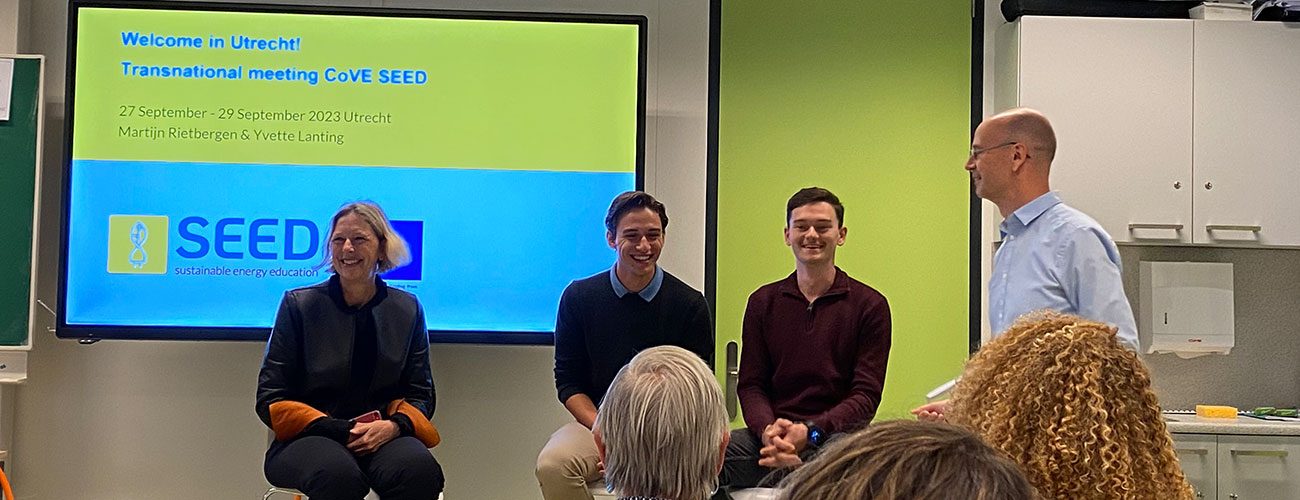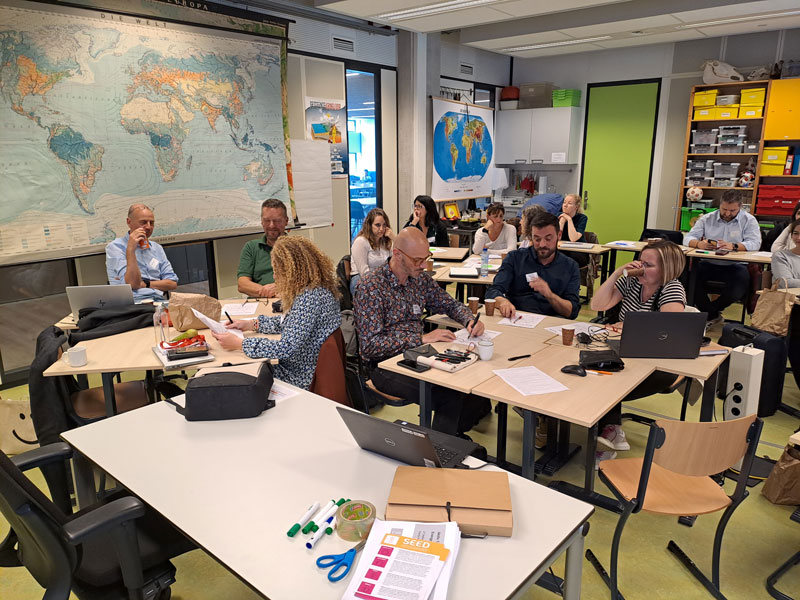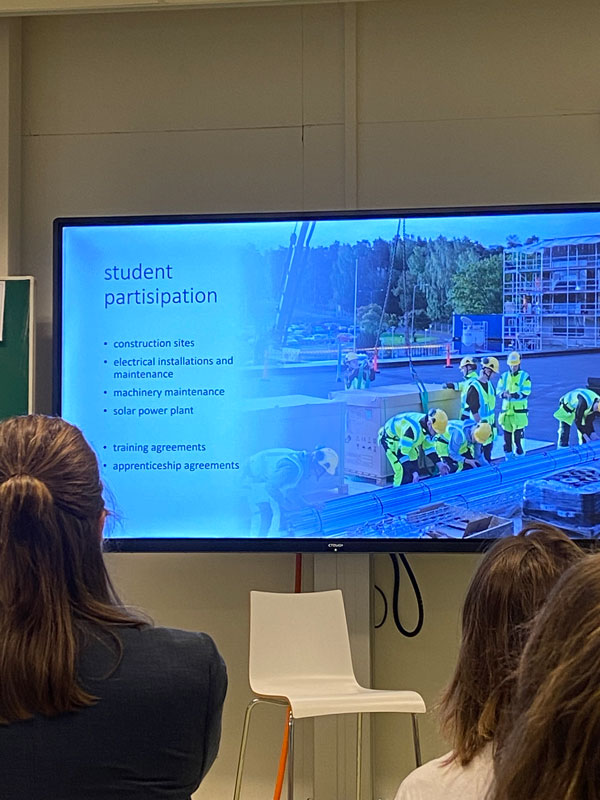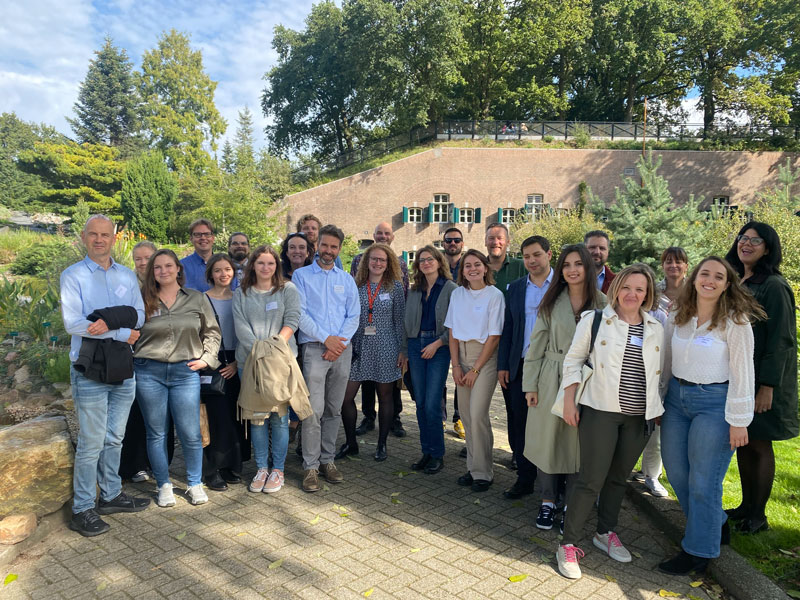After the Forum on Vocational Excellence SEED Project partners met again in Hogeschool Utrecht (HU) for their 15th transnational meeting. Tineke Zweed, a Board member of HU, welcomed them by discussing how HU fosters innovation and professional growth. She also mentioned that HU’s core values aim at societal advancements through collaboration in health, technology, climate, and sustainability. By merging education and professional practice across its diverse campuses, HU significantly impacts the region, striving for a more open and sustainable society.
On the first day of the meeting, partners explored WP2 findings from skills scans across five regions and discussed educational best practices. They explored how employers tend to value soft skills more than technical skills, as well as emphasizing the crucial role of digital skills, laying the groundwork for future regional strategies within SEED. Moreover, both University Professors and VET teachers engaged in conversations exchanging good practices for teaching. This engagement was further enriched by a workshop focused on enhancing digital, green, and soft skills. The workshop showcased various innovative educational approaches from different regions, emphasizing practical skill application in sustainable energy sectors. Through “train the trainer” sessions, participants were equipped with valuable tools and strategies, thereby helping the participants to effectively mentor students in addressing challenges in energy sustainability. During the SEED meeting at HU, partners also toured EnergyLab, where Marcel de Reeder demonstrated how students translate theoretical knowledge into sustainable real-world solutions. The highlight was the climate chamber, enabling students to test building materials under varied conditions. This tour illustrated HU’s emphasis on practical, collaborative learning aimed at addressing urban sustainability challenges, aligning with SEED’s broader objectives.
On the next day, SEED partners visited ROC Midden Nederland in Nieuwegein, Utrecht, witnessing how vocational education shapes future professionals. The Automotive College demonstrated a comprehensive curriculum, preparing students in various automotive disciplines through a combination of classroom learning and internships. The exploration of the Public Private Partnerships (PPP) model illustrated a successful collaboration between the college and industry, facilitating modern equipment acquisition and ensuring education meets labor market demands. During the visit, a discussion on lifelong learning’s role in energy transition ensued, emphasizing the necessity of upskilling and reskilling to navigate Europe’s green and digital shifts. Addressing skills gaps, especially in digital realms, and promoting adaptability were highlighted. New learning strategies like experiential learning and broader professional networking were explored to effectively tackle challenges in energy transition. In that day two important workshops were also conducted. The first workshop centered on finalizing regional strategies, where each region reviewed the outcomes from the Quick Scan COVE Maturity and drafted their strategies using a provided blueprint, focusing on vision, challenges, opportunities, and actionable steps for their COVEs. They engaged in peer discussions to refine their strategies, setting the stage for upcoming regional development plans. On the other hand, the second workshop aimed at enhancing Good Practices across regions. An impact measurement tool was introduced to evaluate practices in Teaching & Learning, Cooperation & Partnership, and Governance & Finance. Regions evaluated different Good Practices, providing feedback on potential improvements, which will continue to be discussed ensuring a comprehensive examination of practices to drive regional strategic improvements.
On the final day, partners engaged in a co-design workshop, starting with self-assessment of their co-design abilities. The essence of co-design, its distinction from design thinking and collaborative design, was explained thoroughly. Unlike other design frameworks, co-design highlights involving various stakeholders intensively towards a shared goal. The workshop provided insights on framing project goals and uncovering underlying problems hindering effective curriculum development, especially in aligning with the rapidly evolving energy sector. After the workshop the partners acquired a co-design toolbox to strategize and enhance collaborative efforts in their respective CοVE regions, aiming to discuss experiences in subsequent meetings. Furthermore, a visit to Denver House in Utrecht Science Park concluded that meeting’s site visits. Denver House, a living lab constructed by Utrecht University of Applied Sciences students, is a hub where academia, business community, and students collaborate on energy and circular innovations, fostering a hands-on learning environment. The SEED partners’ interaction with students at Denver House underscored the living lab’s quintessence in bridging theoretical knowledge with practical applications, a case that combines addressing real-world sustainability challenges and preparing students for the job market.




